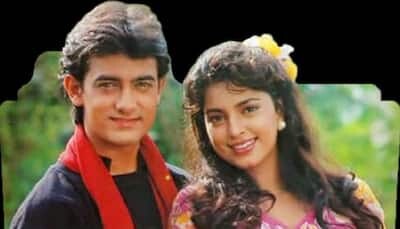
New Delhi: As the calendar turns to mark the year 2023, the heartstrings of the cinephiles across generations are strummed in unison to the melody of an epic love saga that has echoed through the annals of Bollywood history. Today commemorates the 36th anniversary of an illustrious cinematic masterpiece – Qayamat Se Qayamat Tak (QSQT). The film, released in 1988, didn’t just herald a paradigm shift in storytelling and filmmaking; it became synonymous with the term evergreen, etching its narrative in the minds and hearts as the quintessential love story of the century.
This masterpiece, acclaimed across the subcontinent, traced its humble origins through the hands of director Mansoor Khan. QSQT is an odyssey of passion, a melodic symphony woven around the tapestry of love, loss, and longing. Crafted with finesse, the tale of Raj and Rashmi, portrayed by debutant Aamir Khan and the vivacious Juhi Chawla, transcended beyond performances to become legends in their own right. This film did not just mark the beginning of Aamir Khan’s sterling career but emphatically stamped his presence as a force majeure in Indian cinema.
QSQT was not merely another addition to the vibrant hues of Bollywood but a luminary that still outshines with its pure and powerful portrayal of nuanced romance. Aamir Khan’s Raj emanated a charm that captivated audiences, while Juhi Chawla’s Rashmi brought grace and innocence that endeared her to millions. Their chemistry, almost mythical in its perfection, seared across the silver screen, redefining on-screen romance and elevating both to the zenith of stardom.
The love the protagonists harbored, besieged by societal norms, parental opposition, and the age-old clash between modernity and tradition, encapsulated a rebellion that was both earnest and pure. It was a narrative that delved deep into social constructs, mirroring the angst and aspirations of a generation ready to redefine conventions. QSQT was the clarion call of youthful defiance, an anthem that still reverberates through the corridors of time.
Beyond the gripping narrative, it was the unparalleled soundtrack of QSQT that became the lifeline of its undying legacy. Composed by the gifted duo Anand-Milind and illustrated through the poetic brilliance of Majrooh Sultanpuri, the music of QSQT still resonates with profound emotional depth. Anthems such as “Papa Kehte Hain,” “Akele Hain Toh Kya Gum Hai,” and “Ae Mere Humsafar” became more than just songs; they turned into the soundtrack of a nation’s emotions, a melody uniting disparate hearts across a pluralistic society.
Winning the prestigious National Film Award for Best Popular Film, the musical romance ensemble not only charmed the audience but also garnered critical accolades that underscored the film’s impact and influence. QSQT became an immortal oeuvre, a beacon of cinematic brilliance that helped define the decade of the nineties for Hindi cinema.
This film’s legacy is such that to call it historical would be a gross understatement — QSQT is a phenomenon. It forever altered the trajectory of Bollywood, its ripples still felt in the waves of contemporary cinema. It stands as a towering moment in the history of Indian cinema, not just for altering the course of an industry but also for the indelible mark it has left on an entire culture. QSQT reimagined the possibilities of the romantic genre, integrating a fresh perspective with universal appeal.
Thirty-six years on, Qayamat Se Qayamat Tak stands as a testament to an era when cinema was not just entertainment but an art form that held the power to influence and inspire. It continues to weave its magic, an eternal love story that redefines the narrative landscape, cementing its position not as a mere film but as a legacy carved out of the annals of romantic folklore.










